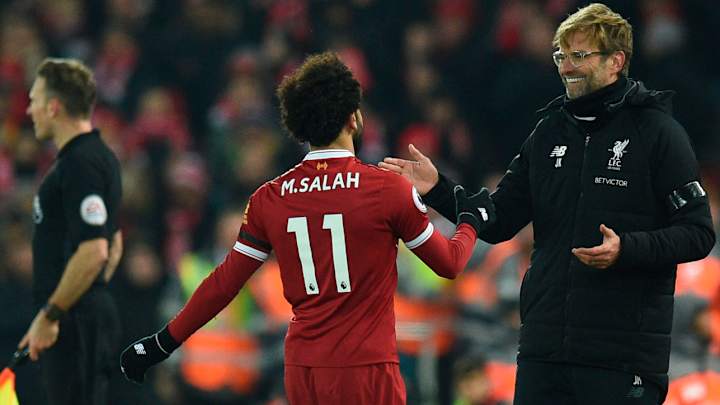What Jurgen Klopp's Cup Final Past Indicates for Liverpool Entering UCL Title Bout

Just because something has happened before does not mean it will happen again, but ahead of Saturday’s Champions League final against Real Madrid, Liverpool fans may regard Jurgen Klopp’s record in cup finals with concern. This is the seventh final the Liverpool manager has reached; he has lost five of the previous six.
How significant that statistic is, of course, depends largely on context. Is there a unifying theme to the defeats? Is there something that keeps going wrong?
The first final Klopp reached was that of the German Cup in 2012. His Borussia Dortmund side twice took the lead against Bayern Munich, was twice pegged back, and went in to win 5-2 thanks to a hat trick from Robert Lewandowski.
A year later, Dortmund faced Bayern again in a final, this time at Wembley in the Champions League. Dortmund had been unsettled by the breaking story that Lewandowski would leave the club for Bayern the following summer. Mario Mandzukic put Bayern ahead, but Ilkay Gundogan levelled from the penalty spot, with Dante, who had already been booked, perhaps fortunate not to receive a second yellow card for catching Marc Reus in the stomach. Arjen Robben won the game for Bayern with two minutes remaining.
A year later, there was another defeat to Bayern in the German Cup final, this one 2-0 after extra time. The year after that, Dortmund reached the Cup final again and, having taken the lead, lost 3-1 to Wolfsburg.
Real Madrid Eyes a Fourth UCL Title in Five Years; But Has it Truly Been Great?
Klopp moved to Liverpool, and in 2016 suffered two more final defeats. First there was a penalty shootout defeat against Manuel Pellegrini’s Manchester City in the League Cup final after a 1-1 draw. Then, more alarmingly, there was a second-half capitulation against Unai Emery’s Sevilla in the Europa League final that saw a 1-0 halftime lead transformed into a 3-1 defeat.
Is there, then, a common theme? Of the six, half were against Bayern, a club of far greater resources than Dortmund. To win one and lose two of those–and the two defeats both in tight games–is entirely understandable. Equally, the penalty shootout defeat to City hardly counts as a disaster. Of more concern are the two 3-1 defeats: both to ostensibly lesser sides, and both with Klopp's sides having taken the lead. Two games aren’t enough to be a pattern–and there’s an argument that Sevilla, although financially weaker than Liverpool, was the more experienced and more settled team–but there is perhaps a hint in those two matches of a wider point. And that point is that Liverpool must attack.
Klopp sides are not set up to defend. Liverpool, it’s true, has improved in that regard since the arrival of Virgil van Dijk in January, and it did hold a demoralized Manchester City at arm’s length in the second half of the first leg of the Champions League semifinal. But it is a team that has conceded three or more in a game on eight occasions this season. It cannot rely on its defense, and games like the 3-3 draw against Sevilla, or even the 2-2 draw against West Brom, demonstrate the danger if, having taken a seemingly comfortable lead, it sits off and attempts to draw the sting of the opposition.
The Roma semifinal, perhaps, offers the greatest reason for concern. The first leg was bewildering, firstly for how uncomfortable Liverpool looked in the first half hour when a side pressed it in midfield and put pressure on its fullbacks; then for the way Liverpool devastated Roma once the tide had turned; and then for how Liverpool, with the game seemingly won, let Roma back into the game.
Perhaps the second leg can be written off as simply a strange game, the kind that can occur when a team with a comfortable lead begins to second-guess itself, but what was odd was how, having scored the two away goals, Liverpool became so tentative, caught between the two stools of its natural attacking game on the one hand and an urge simply to retain possession on the other. Understandable as that is, it doesn’t alter the fact that Liverpool ended up, if not clinging on, then at least a little uncomfortable in a tie it had at various points led 5-0 and 7-3 (with two away goals).
There can be minor variations, of course, and Liverpool will surely in Kiev seek to exploit the attacking inclinations of Marcelo to focus even more than usual on playing through Mohamed Salah on its right, but essentially Klopp’s sides have to operate one way. Whatever temptation there may be in a final to be conservative, to hold back a fraction, Liverpool has to attack.
